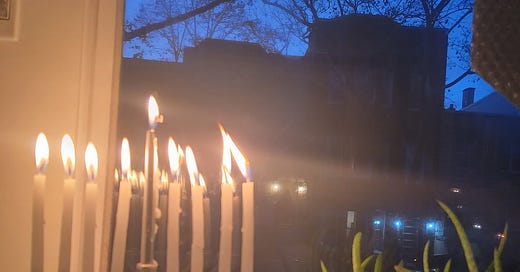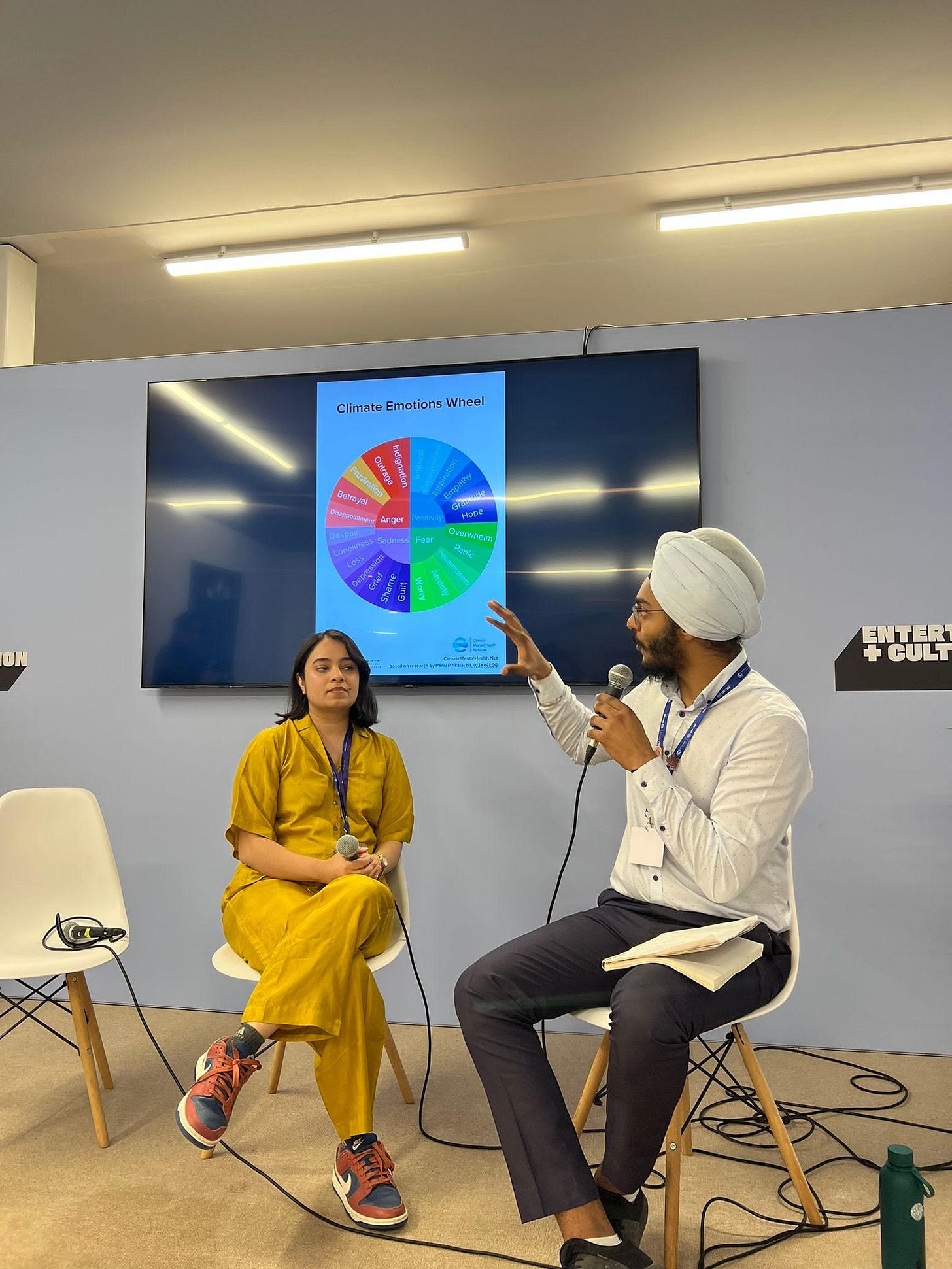Hello friends.
It’s the first day of Chanukah.
The historical story of Chanukah is the story of a war, zealots, atrocities, absolutism. In other words, the news right now. I feel like my heart broke all over again when the ceasefire was broken and the hostages stopped being returned, what about you?
Another, perhaps more ancient, perhaps simpler meaning, is that it’s a festival of lights in the darkest days of the year—not only the longest nights, but the longest nights with the least moonlight.
And I’m going to quote my dad, who just posted on Facebook:
”The message of Chanukah for me, is that there’s a hidden light we see best when outward things are dark, and boy they feel dark right now. This hidden light is what my teacher Reb Zalman z“l called the miraculous order. I would add that the miraculous order is out there because it is also within each of us— if only we would learn to see with imagination—“not with but through the eye” (as Blake says). In that light we can look in the faces of others and see their pain and suffering.”
And speaking of darkness, speaking of my dad, and speaking of empathy,
I wrote this week about whether it’s ok to have kids in the climate crisis.
Whoa did it blow up in the comments! The article is almost like a Rorschach blot for people’s intense feelings on a very intense topic. I think I could have been clearer up front to say, and in earlier drafts, I did include the stipulation: Reproductive choices are nobody else’s business. Pro-natalism (the cultural pressure to procreate) is oppressive and harmful to women. I lift up and celebrate my childfree friends. Their lives are beautiful and valid and full of focus and accomplishment and pleasure and love.
And it’s also true that as a parent, it makes me feel a certain way when people I know and respect are afraid to have children because, well, I already have them. It makes me feel like I’ve placed a bet on the future and they’re betting the other way. This essay is, more than anything, about those feelings, which are personal to me.
I talked to other women who have thought and felt deeply about this issue, like Britt Wray and Elizabeth Cripps, author of Parenting on Earth, and the founders of Conceivable Future. And it actually helped me a lot.
Cripps’ conclusion is that parenting is a precious part of the human experience. The unfulfilled desire to parent is a condition of misery and grief. It’s too much of a sacrifice to ask of any individual to give up parenting, considering that those in power are not doing their part to stop the climate crisis.
Yessenia Funes made the point that we all have a responsibility to the next generation, whether you have a child or not.
Yet, our children’s futures are uncertain right now and that is terrifying. In some ways, that existential condition joins us more closely to our ancestors, who gave birth, some of them, in even more apocalyptic circumstances than these.
And what our condition also does—in my opinion—is it gives parents an intensified, personal responsiblity to act.
There’s an amazing study that just came out where they asked 60,000 people across 23 countries to find out what message best motivated the public on climate.
It was love.
The data clearly showed that one message moves the whole world significantly: protecting the planet for the next generation.
It’s love. It’s love. It’s love.
Across every country, love for the next generation was the dominant reason for action on climate change. This reason was 12 times more popular than creating jobs.
It’s love. It’s love. It’s love. It’s love.
Some links
Rachel Cohen wrote an essay very much in conversation with mine, about Millennials’ dread of having kids.
Must listen: Harriet Shugarman was on On Point Radio talking about how to talk to kids about climate change.
I so enjoyed talking to a Navajo storyteller for this story about Indigenous knowledge and outdoor learning.
An interview with the parents of the little Palestinian boy who was stabbed in Illinois; their incandescent love.
Climate cafes for parents in New Hampshire—more of this please!
A lot of stuff is happening at COP28, the giant climate conference in Dubai ; I’ll try to do a roundup next week, but one cool thing is that the Climate Emotions Wheel was presented at the Entertainment and Culture pavilion by Abhay Singh Sachal, a Climate Mental Health Network GenZ advisor and youth activist based in Canada.







